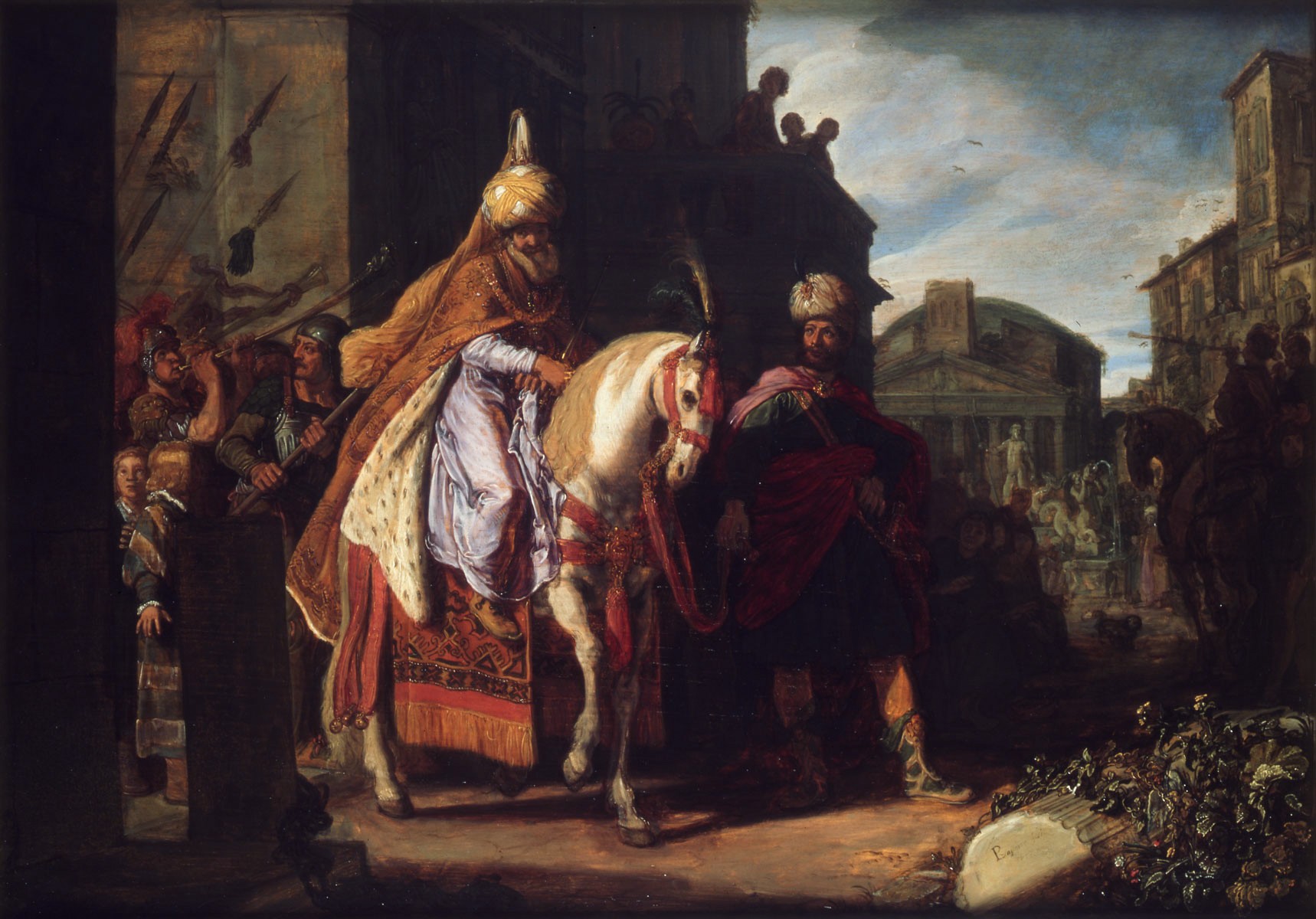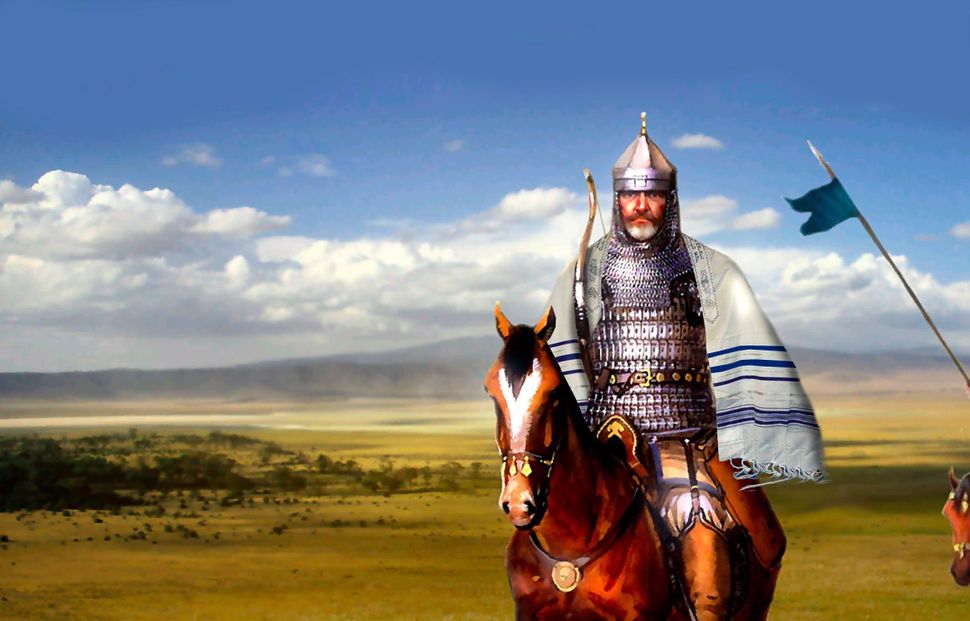Overview: The popular shield from questions that threaten Orthodox belief, the absurdity of blindly following religious dogma, the great rabbis who weren’t afraid to address the issues, and the 13 principles of faith.
The Kefirah shield
With many exceptions, overall today’s Orthodox community hides from the legitimate issues raised by Bible Critics and scholars on the religious dogma and practice of Orthodox Judaism. Most adherents, perhaps with good reason, are purposely “protected” against these questions from science, archeology, and philosophy. When some are exposed to these legitimate issues questioning the axioms of their faith, they will often brush it out of their head as “Kefirah” (heresy) or these questions will be rejected by their teachers and rabbis as heresy.
One may argue that this is the correct approach for those who are “simple believers” or who are intellectually-disadvantaged such that they cannot fathom the issues properly. For them it may be wise to be shielded against the rational discussions of the issues. But to reject all the issues as “heresy” is both intellectually wrong and practically wrong when dealing with the intelligent seekers who are genuinely bothered by the serious rational issues that must be addressed. Numbers cannot describe the vast extent of intellectuals who have been deprived of answers in the Orthodox community and have left the traditional way as a result.
The absurdity of blindly believing religious dogma
From an objective point of view as well it is an absurdity to blindly believe in religious dogma – principles of faith – just because others tell you that you must believe it. Any dogma, including religious dogma, is a form of dictatorship in which you are not in control of your beliefs, rather you leave it in the hands of others to decide what you “may” or “may not” believe. But why should your views be constricted? Why should you not be able to think on your own? Why should you decide to listen to certain Jewish rabbis over Christian priests or over Muslim Imams?
There’s no logic to any person or system being able to mandate what you are allowed and what you are not allowed to believe in. Why should that person or system have an authority over what you believe?! One may argue that they trust that system or person and will therefore accept whatever the system or person says they should accept; but the question then becomes why not trust a different system or different group of people (see “The Argument from the Positive Evaluation of Great Jewish Leaders” for more on this). Ultimately, we will need to decide for ourselves what makes sense to believe and what not.
This applies to each individual, and how much more so to the way we treat others. To call someone else a “Kofer!” and therefore disrespect them or shame them is the equivalent of saying “either you believe what I blindly decided to believe or I will disrespect you.” Any intellectual, self-respecting person will realize the fallacy in that and will either change their approach or change their attitude towards others who decided to follow their logic instead of mandated beliefs.
Some will argue that we should believe in these religious principles “just in case” they are true and just in case we will get punished for disbelieving them (see Pascal’s Wager). But this approach fails for the simple reason that you cannot trick yourself into believing something that you don’t. The only thing we can discipline ourselves to do, perhaps against our will, is in action. But in thought – we either do or do not believe in something. Sometimes we can be uncertain about something as well – and that uncertainty is what we believe: we are uncertain. But do say that we believe in something “just in case” it is true, is both intellectually dishonest and, frankly, impossible.
The rabbinic defenders
Indeed many great rabbinic thinkers of the past have embraced these issues and dealt with them extensively. They weren’t afraid of the issues; they emended their views based on the evidence and followed where logic dictated them. There’s no greater example than Maimonides and his work moreh nevuchim. Many other great thinkers – considered from the greatest of minds in Orthodox view – have deviated from mainstream Orthodox belief when they saw necessary. They were fervently committed to Judaism and Halacha, yet their views would, shamefully, be considered “heresy” by many Orthodox believers today. More on this later.
In reality, this approach shouldn’t be looked at as defending Judaism but as a mechanism to better understand our religion and its roots. These new archaeological discoveries and the comparisons to Ancient Near East documents should give us more clarity about the truth of our sacred religion. When taken with a grain of salt, these discoveries can reveal to us what our predecessors like Rashi, Rambam, and Hillel couldn’t have known with the primitive knowledge the word had at that time. We must embrace this blessing rather than shun it.
The 13 principles of faith
In what has become the staple of Orthodox belief, Rambam’s 13 principles of faith are regarded as the “must-believes” in order to be called Orthodox.[1] Some will even consider those who disagree with these principles to be a heretic! There is so much wrong with this approach and a simple history lesson will reveal that.
There was never a set of beliefs considered essential for Judaism until much later in Jewish history. Even that set of beliefs evolved over time. The Torah itself mandates action alone: serve God and follow His laws. No belief requirements are made in the Torah. Later on, we begin to treat some people as a “heretic” and exclude them from a religious minyan, for example. By the time we reach Rav Saadiah Gaon, he collects the essential beliefs for Judaism as follows:[i] The world was created by God; God is one and incorporeal; belief in revelation (including the divine origin of tradition); man is called to righteousness, and endowed with all necessary qualities of mind and soul to avoid sin; belief in reward and punishment; the soul is created pure; after death, it leaves the body; belief in resurrection; Messianic expectation, retribution, and final judgement.
Maimonides adds to this list but his authority only becomes popular later on. Other great rabbis don’t take Rambam’s essential faiths for granted. For example, many notable rabbis disagreed with Rambam on his 8th principle of purely Mosaic authorship of Torah (see “Did Moses Really Write the Torah”). Others disagreed with his approach on Moshiach in the 12th principle and even argued that the messianic era has already happened (see Sanhedrin 99a for a Talmudic sage who had this view, although this view was later marginalized).
Some successors of Maimonides, from the 13th to the 15th century — Nachmanides, Abba Mari ben Moses, Simon ben Zemah Duran, Joseph Albo, Isaac Arama, and Joseph Jaabez — narrowed his 13 articles to three core beliefs from which the others are derived: Belief in God; in Creation (or revelation); and in providence (or retribution).
Many rabbinic scholars after Maimonides, like Rabbenu Crescas and David ben Samuel Estella, spoke of seven fundamental articles, laying stress on free-will. On the other hand, David ben Yom-Tob ibn Bilia, in his Yesodot haMaskil, adds to the 13 of Maimonides 13 of his own; while Jedaiah Penini, in the last chapter of his Behinat haDaat, enumerated no fewer than 35 cardinal principles.
Rambam’s 13 principles become popular after the Reform movement sprung out of the Enlightenment in the 19th-century. In order to protect against the new wave of questioning Judaism’s practices, the Orthodox community sought to insulate itself from mainstream culture and mainstream academia, and developed Rambam’s principles as the staple of belief in order to be consider an Orthodox Jew. This was a grave move and a perversion of a previously diverse belief system in Judaism. What was once considered acceptable beliefs by leading rabbinic figures has now become marginalized and even heretical. The standardization of Judaism by the Ultra-Orthodox community, by and large, has erased the diversity of opinions that once made our culture so great. I hope this is rectified in the near future so that the sanctity of Judaism be upheld.
___________________
[1] 13 Principles of Faith Summarized:
- I believe with perfect faith that the Creator, Blessed be His Name, is the Creator and Guide of everything that has been created; He alone has made, does make, and will make all things.
- I believe with perfect faith that the Creator, Blessed be His Name, is One, and that there is no unity in any manner like His, and that He alone is our God, who was, and is, and will be.
- I believe with perfect faith that the Creator, Blessed be His Name, has no body, and that He is free from all the properties of matter, and that there can be no (physical) comparison to Him whatsoever.
- I believe with perfect faith that the Creator, Blessed be His Name, is the first and the last.
- I believe with perfect faith that to the Creator, Blessed be His Name, and to Him alone, it is right to pray, and that it is not right to pray to any being besides Him.
- I believe with perfect faith that all the words of the prophets are true.
- I believe with perfect faith that the prophecy of Moses our teacher, peace be upon him, was true, and that he was the chief of the prophets, both those who preceded him and those who followed him.
- I believe with perfect faith that the entire Torah that is now in our possession is the same that was given to Moses our teacher, peace be upon him.
- I believe with perfect faith that this Torah will not be exchanged, and that there will never be any other Torah from the Creator, Blessed be His Name.
- I believe with perfect faith that the Creator, Blessed be His Name, knows all the deeds of human beings and all their thoughts, as it is written, “Who fashioned the hearts of them all, Who comprehends all their actions” (Psalms 33:15).
- I believe with perfect faith that the Creator, Blessed be His Name, rewards those who keep His commandments and punishes those that transgress them.
- I believe with perfect faith in the coming of the Messiah; and even though he may tarry, nonetheless, I wait every day for his coming.
- I believe with perfect faith that there will be a revival of the dead at the time when it shall please the Creator, Blessed be His name, and His mention shall be exalted for ever and ever.
[i] In his famed theological treatise titled Emunot VeDeot.




